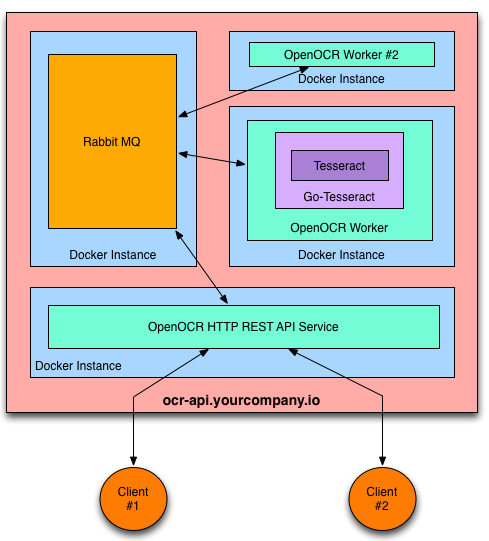 Documentation
¶
Documentation
¶
Index ¶
- Constants
- type ConvertPdf
- type FlagFunction
- type ImageProcessing
- type MockEngine
- type OcrEngine
- type OcrEngineType
- type OcrHttpHandler
- type OcrHttpMultipartHandler
- type OcrRequest
- type OcrResult
- type OcrRpcClient
- type OcrRpcWorker
- type Preprocessor
- type PreprocessorRpcWorker
- type RabbitConfig
- type TesseractEngine
- type TesseractEngineArgs
Constants ¶
View Source
const ( ENGINE_TESSERACT = OcrEngineType(iota) ENGINE_GO_TESSERACT ENGINE_MOCK )
View Source
const MOCK_ENGINE_RESPONSE = "mock engine decoder response"
View Source
const PREPROCESSOR_CONVERTPDF = "convert-pdf"
View Source
const PREPROCESSOR_IMGPROC = "img-proc"
View Source
const ( // RPC_RESPONSE_TIMEOUT = time.Second * 120 RPC_RESPONSE_TIMEOUT = time.Second * 5000 )
Variables ¶
This section is empty.
Functions ¶
This section is empty.
Types ¶
type ConvertPdf ¶
type ConvertPdf struct {
}
type FlagFunction ¶
type FlagFunction func()
func NoOpFlagFunction ¶
func NoOpFlagFunction() FlagFunction
type ImageProcessing ¶
type ImageProcessing struct {
}
type MockEngine ¶
type MockEngine struct {
}
func (MockEngine) ProcessRequest ¶
func (m MockEngine) ProcessRequest(ocrRequest OcrRequest) (OcrResult, error)
type OcrEngine ¶
type OcrEngine interface {
ProcessRequest(ocrRequest OcrRequest) (OcrResult, error)
}
func NewOcrEngine ¶
func NewOcrEngine(engineType OcrEngineType) OcrEngine
type OcrEngineType ¶
type OcrEngineType int
func (OcrEngineType) String ¶
func (e OcrEngineType) String() string
func (*OcrEngineType) UnmarshalJSON ¶
func (e *OcrEngineType) UnmarshalJSON(b []byte) (err error)
type OcrHttpHandler ¶
type OcrHttpHandler struct {
RabbitConfig RabbitConfig
}
func NewOcrHttpHandler ¶
func NewOcrHttpHandler(r RabbitConfig) *OcrHttpHandler
func (*OcrHttpHandler) ServeHTTP ¶
func (s *OcrHttpHandler) ServeHTTP(w http.ResponseWriter, req *http.Request)
type OcrHttpMultipartHandler ¶
type OcrHttpMultipartHandler struct {
RabbitConfig RabbitConfig
}
func NewOcrHttpMultipartHandler ¶
func NewOcrHttpMultipartHandler(r RabbitConfig) *OcrHttpMultipartHandler
func (*OcrHttpMultipartHandler) ServeHTTP ¶
func (s *OcrHttpMultipartHandler) ServeHTTP(w http.ResponseWriter, req *http.Request)
type OcrRequest ¶
type OcrRequest struct {
ImgUrl string `json:"img_url"`
Name string `json:"name"`
EngineType OcrEngineType `json:"engine"`
ImgBytes []byte `json:"img_bytes"`
ImgFiles [][]byte `json:"img_files"`
PreprocessorChain []string `json:"preprocessors"`
PreprocessorArgs map[string]interface{} `json:"preprocessor-args"`
EngineArgs map[string]interface{} `json:"engine_args"`
Bypass bool
// decode ocr in http handler rather than putting in queue
InplaceDecode bool `json:"inplace_decode"`
}
func (OcrRequest) String ¶
func (o OcrRequest) String() string
type OcrResult ¶
func HandleOcrRequest ¶
func HandleOcrRequest(ocrRequest OcrRequest, rabbitConfig RabbitConfig) (OcrResult, error)
type OcrRpcClient ¶
type OcrRpcClient struct {
// contains filtered or unexported fields
}
func NewOcrRpcClient ¶
func NewOcrRpcClient(rc RabbitConfig) (*OcrRpcClient, error)
func (*OcrRpcClient) DecodeImage ¶
func (c *OcrRpcClient) DecodeImage(ocrRequest OcrRequest) (OcrResult, error)
type OcrRpcWorker ¶
type OcrRpcWorker struct {
Done chan error
// contains filtered or unexported fields
}
func NewOcrRpcWorker ¶
func NewOcrRpcWorker(rc RabbitConfig) (*OcrRpcWorker, error)
func (OcrRpcWorker) Run ¶
func (w OcrRpcWorker) Run() error
func (*OcrRpcWorker) Shutdown ¶
func (w *OcrRpcWorker) Shutdown() error
type Preprocessor ¶
type Preprocessor interface {
// contains filtered or unexported methods
}
type PreprocessorRpcWorker ¶
type PreprocessorRpcWorker struct {
Done chan error
// contains filtered or unexported fields
}
func NewPreprocessorRpcWorker ¶
func NewPreprocessorRpcWorker(rc RabbitConfig, preprocessor string) (*PreprocessorRpcWorker, error)
func (PreprocessorRpcWorker) Run ¶
func (w PreprocessorRpcWorker) Run() error
func (*PreprocessorRpcWorker) Shutdown ¶
func (w *PreprocessorRpcWorker) Shutdown() error
type RabbitConfig ¶
type RabbitConfig struct {
AmqpURI string
Exchange string
ExchangeType string
RoutingKey string
Reliable bool
}
func DefaultConfigFlagsOverride ¶
func DefaultConfigFlagsOverride(flagFunction FlagFunction) RabbitConfig
func DefaultTestConfig ¶
func DefaultTestConfig() RabbitConfig
type TesseractEngine ¶
type TesseractEngine struct {
}
This variant of the TesseractEngine calls tesseract via exec
func (TesseractEngine) ProcessRequest ¶
func (t TesseractEngine) ProcessRequest(ocrRequest OcrRequest) (OcrResult, error)
type TesseractEngineArgs ¶
type TesseractEngineArgs struct {
// contains filtered or unexported fields
}
func NewTesseractEngineArgs ¶
func NewTesseractEngineArgs(ocrRequest OcrRequest) (*TesseractEngineArgs, error)
func (TesseractEngineArgs) Export ¶
func (t TesseractEngineArgs) Export() []string
return a slice that can be passed to tesseract binary as command line args, eg, ["-c", "tessedit_char_whitelist=0123456789", "-c", "foo=bar"]
 Source Files
¶
Source Files
¶
Click to show internal directories.
Click to hide internal directories.

